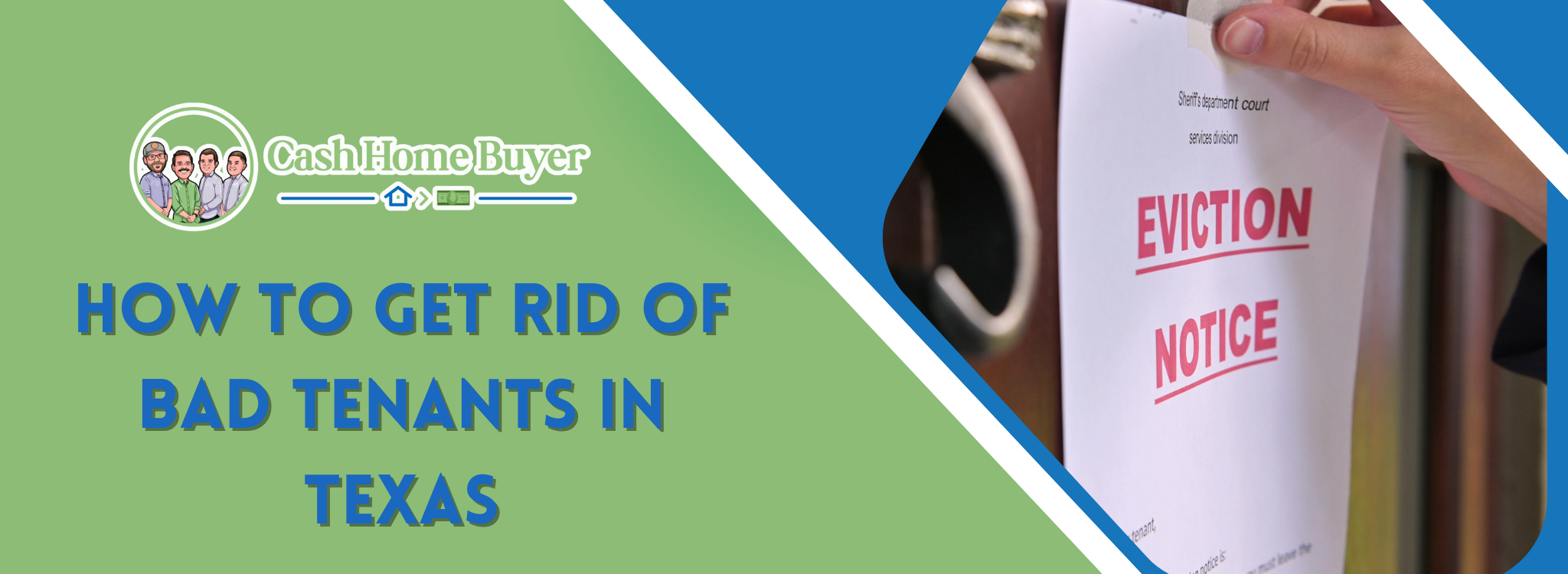
Essential Steps for Tenant Removal in Texas
What Legal Grounds Are There for Removing a Tenant?
In Texas, landlords have certain legal grounds to evict a tenant. Texas eviction rules allow landlords to initiate an eviction if there is a lease agreement violation, such as failure to pay rent, damage to property, or unlawful activity. Landlord rights in Texas allow property owners to act, but they must follow the law to avoid illegal eviction charges.
If you need to evict a tenant, get tenant legal advice in Texas to ensure you obey state laws. Following these legal processes assures a more efficient eviction process and decreases the likelihood of legal disputes.
How Can Proper Documentation Assist in the Tenant Eviction Process?

Documentation is crucial in the eviction process in Texas. Keeping detailed records helps landlords prove their claims, making the rental eviction process easier. Here are some important documentation steps:
- Keep Consistent Records: Record any lease agreement violations, including late payments, complaints, and talks with the tenant.
- Gather Evidence: Collect evidence of lease violations or bad behavior. This can include photos, audio recordings, or written statements from neighbors.
- Organize All Records: Organize all correspondence and notices, including phone calls or meeting notes.
Proper documentation strengthens a landlord’s case and helps prevent disputes by showing clear evidence of issues.
The Role of Written Notices in Tenant Removal
Written notices are key in the tenant removal process. In Texas, follow the correct procedure when issuing a tenant eviction notice. A 3-day notice to vacate is commonly used, giving tenants time to leave before legal action.
Key Aspects of Written Notices:
- Delivery Methods: Deliver the notice properly. Options include handing it to the tenant or using certified mail for proof.
- Clarity and Specificity: The notice should clearly state the reasons for eviction and reference the lease agreement violation.
- Follow-Up: After delivering the notice, track the tenant’s responses and actions, keeping records for future reference.
By following these steps, landlords can achieve an effective and lawful process for tenant removal.
Effective Communication with Tenants
What Are the Best Practices for Communicating with Difficult Tenants?
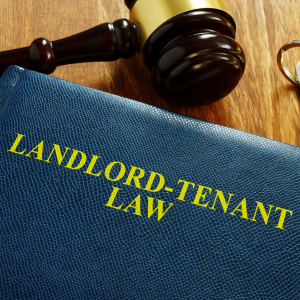
Good communication is important when dealing with difficult tenants, especially in places like Texas, where rental disputes are common. Here are some ways to keep tenant communication clear and effective:
- Be Clear and Simple. Make your messages easy to understand, using simple language that will not confuse the tenant.
- Document Everything: Keep a record of all communications. This helps protect both you and the tenant.
- Stay Calm and Professional: If a tenant gets upset, remain calm to help reduce tension.
- Listen Carefully: Show empathy by listening to what the tenant says. Acknowledge their feelings.
These methods help manage difficult tenants and make resolving rental disputes easier.
How Can Empathetic Communication Facilitate Tenant Compliance?
Using empathy in communication can encourage tenant compliance and resolve conflicts. Understanding tenant disputes with empathy can lead to better outcomes for everyone.
- Acknowledge Concerns: Show the tenant you hear them and value their feelings.
- Offer Solutions: Don’t just point out problems – suggest ways to fix them.
- Make Expectations Clear: Clearly explain any rules or expectations to avoid confusion.
Using empathy, landlords can build trust with tenants, essential for long-term cooperation.
Strategies for Conflict Resolution During Tenant Disputes
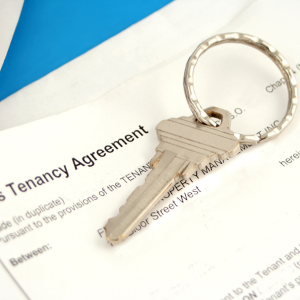
Resolving disputes between landlords and tenants effectively requires a plan. Here are some conflict resolution strategies useful for Texas rental property management:
- Mediation: Consider using a third-party mediator to resolve disputes without going to court.
- Open Conversation: Encourage open talks and provide a safe space for tenants to voice concerns.
- Know the Law: Learn about Texas landlord-tenant laws to ensure all actions are legal.
These strategies can improve tenant dispute management and create a better rental environment.
Alternative Solutions Before Eviction
How Can Mediation Help Avoid Eviction?
Mediation is a helpful way to solve rental disputes and prevent eviction. It involves a neutral third party who assists both the landlord and tenant communicate effectively. In Texas, landlord mediation can tackle late payments or lease disagreements. By using mediation, both sides can work towards tenant compliance and avoid the hassle and costs of eviction.
- Benefits of Mediation:
- Encourages open communication
- Provides a setting to discuss problems
- This can result in a legally binding agreement for both parties
Mediation is a practical method of conflict resolution that can keep tenants in their homes and maintain good relationships.
Exploring Payment Plans as a Solution to Rent Issues
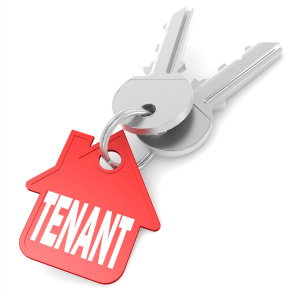
When tenants have financial struggles, payment plans can help address rent issues. These plans allow tenants to catch up on late rent without immediate eviction. Creating a payment plan in Texas requires clear communication and an agreed set of terms between the landlord and tenant.
Steps to Establish a Payment Plan:
- Understand The Financial Situation: Know the tenant’s ability to pay.
- Set Terms: Agree on a realistic schedule and amount for repayment.
- Write it Down: Make sure all details are documented and signed by both parties.
A payment plan can stop non-payment eviction, encourage tenant compliance, and help resolve rental disputes peacefully.
What Are the Benefits of Tenant Relocation Assistance?
Tenant relocation assistance offers a kind alternative to eviction. It helps tenants move when staying in their current home isn’t possible. This support can include money help, finding a new place, or covering moving costs. For landlords in Texas, offering relocation assistance can solve tenant holding-over issues and show good rental property management.
Benefits of Providing Relocation Assistance:
- For Tenants:
- Less stress during moving
- Financial help to ease unexpected costs
- For Landlords:
- Reduces legal conflicts
- Improves reputation as a caring manager
This approach benefits both parties, encourages tenant compliance, and maintains harmony.
Understanding Texas Eviction Laws
How Do Texas Eviction Timelines Work?
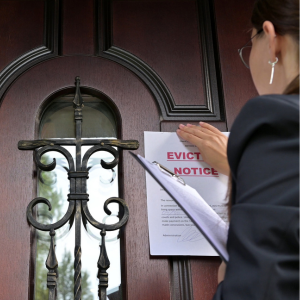
In Texas, the eviction timeline can change based on each case. It usually starts with a 3-day notice to vacate. This tells tenants they need to leave. If they don’t, landlords can go to a Texas justice of the peace eviction court.
The eviction process in Texas has several steps:
- Serving the initial tenant eviction notice.
- Filing an eviction suit if the tenant doesn’t leave.
- A court hearing where both sides present their cases.
Suppose the court rules for the landlord; a writ of possession lets them reclaim the property. Knowing these Texas eviction laws helps landlords and tenants protect their rights.
What Are the Rights and Responsibilities of Landlords?
Landlords in Texas have certain rights and duties, usually part of a Texas rental agreement. They handle property management, collect rent, and ensure the property is safe to live in. They also need to respect Texas tenant rights to prevent unfair treatment.
Key parts of landlord duties include:
- Following lease agreements and dealing with any lease agreement violations.
- We are handling security deposit disputes fairly.
- I am getting legal support from the landlord when enforcing a lease or resolving conflicts.
Balancing landlord rights in Texas with tenant protections helps keep rentals fair and legal.
Steps to Take When Facing Tenant Non-Compliance

When a tenant breaks the lease, certain steps help address the problem:
- Identify the Breach: Check if the tenant’s actions count as a lease breach or if they’re holding over past their lease.
- Communicate Clearly: Tell the tenant what they’re doing wrong with a clear notice to vacate Texas.
- Seek Resolution: Try rental dispute resolution in Texas first to solve the problem out of court.
- Take Legal Action: If needed, pursue eviction through tenant eviction to help Texas in court.
- Address Property Damage: Document any property damage eviction issues for the proceedings.
These steps help landlords deal with tenant non-compliance and stay within Texas law.
Preparing for the Eviction Process
What Documents Are Required for a Legal Eviction?
When you need to evict a tenant in Texas, having the right documents is crucial. Here are the key ones you need:
- Tenant Eviction Notice Texas: This notice tells the tenant they must leave and why. Use an eviction notice template in Texas to follow the Texas eviction laws correctly.
- Notice to Vacate Texas: Landlords must give this notice first, allowing the tenant to move out before legal action.
- Legal Eviction Texas Paperwork: Ensure all forms and agreements are filled out properly and include any documents supporting the eviction reasons.
Having these documents ready helps you follow the eviction process in Texas smoothly.
How to Engage Legal Support for Tenant Eviction?
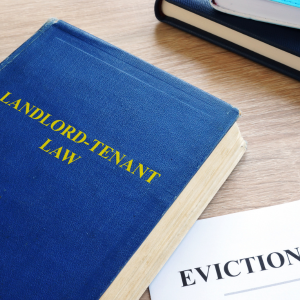
Legal help can make tenant eviction easier. Here’s what you should do:
- Tenant Eviction Attorney Texas: Consider hiring an attorney who knows the rental eviction process in Texas. They can guide you and represent you in court.
- Landlord Legal Support Texas: Services are available to help with everything from preparing notices to representing you at the Texas Justice of the Peace eviction hearings.
- Eviction Lawsuit Texas: If you need to go to court, a legal expert can ensure all steps are correctly followed, reducing problems or delays.
Getting advice from a lawyer can make the eviction process less complicated.
Key Considerations When Going to Eviction Court in Texas
If you are going to eviction court in Texas, prepare well. Keep these points in mind:
- Texas Eviction Court: Learn about the court’s rules and the role of the Texas justice of the peace in handling evictions.
- Eviction Timeline Texas: Knowing how long the eviction process usually takes helps keep everything on track.
- Landlord-Tenant Disputes Texas: If there are any disputes, be ready to present evidence and documents that support your side.
Being informed and ready makes the court process much easier.
Following these steps and getting the right help will allow you to manage the eviction process effectively. For more assistance, consider contacting A Cash Home Buyer for additional solutions.
This information applies to Texas and its cities, including Austin, Houston, El Paso, and more. Please call us at (214) 617-1510 for assistance or if you have questions. You can also visit our website at A Cash Home Buyer for more details.
Sell Your Texas Home This Week!
You really can sell your house in Texas quickly and still get a fair price. Get your offer from the Cash Home Buyer team started today.


